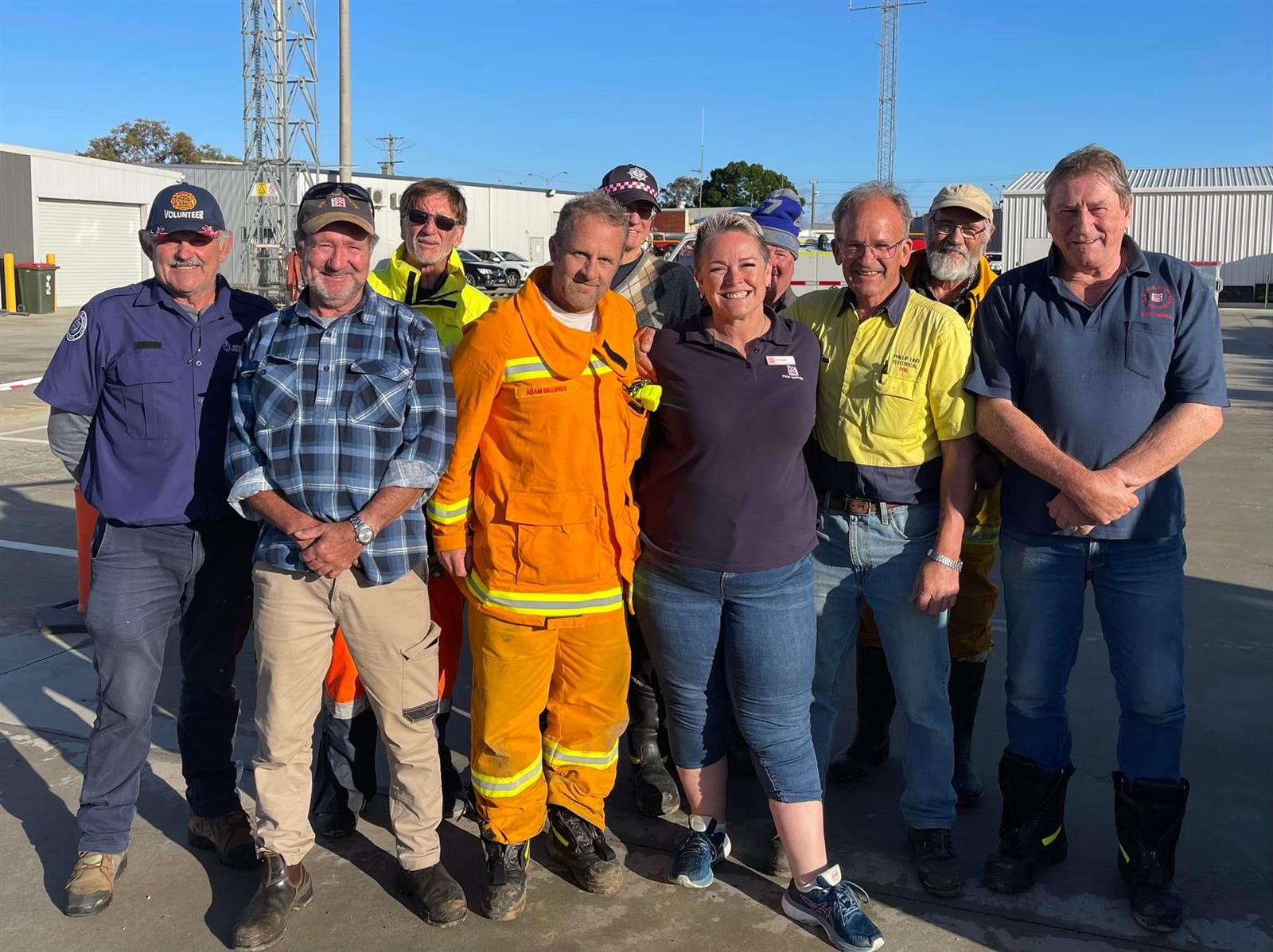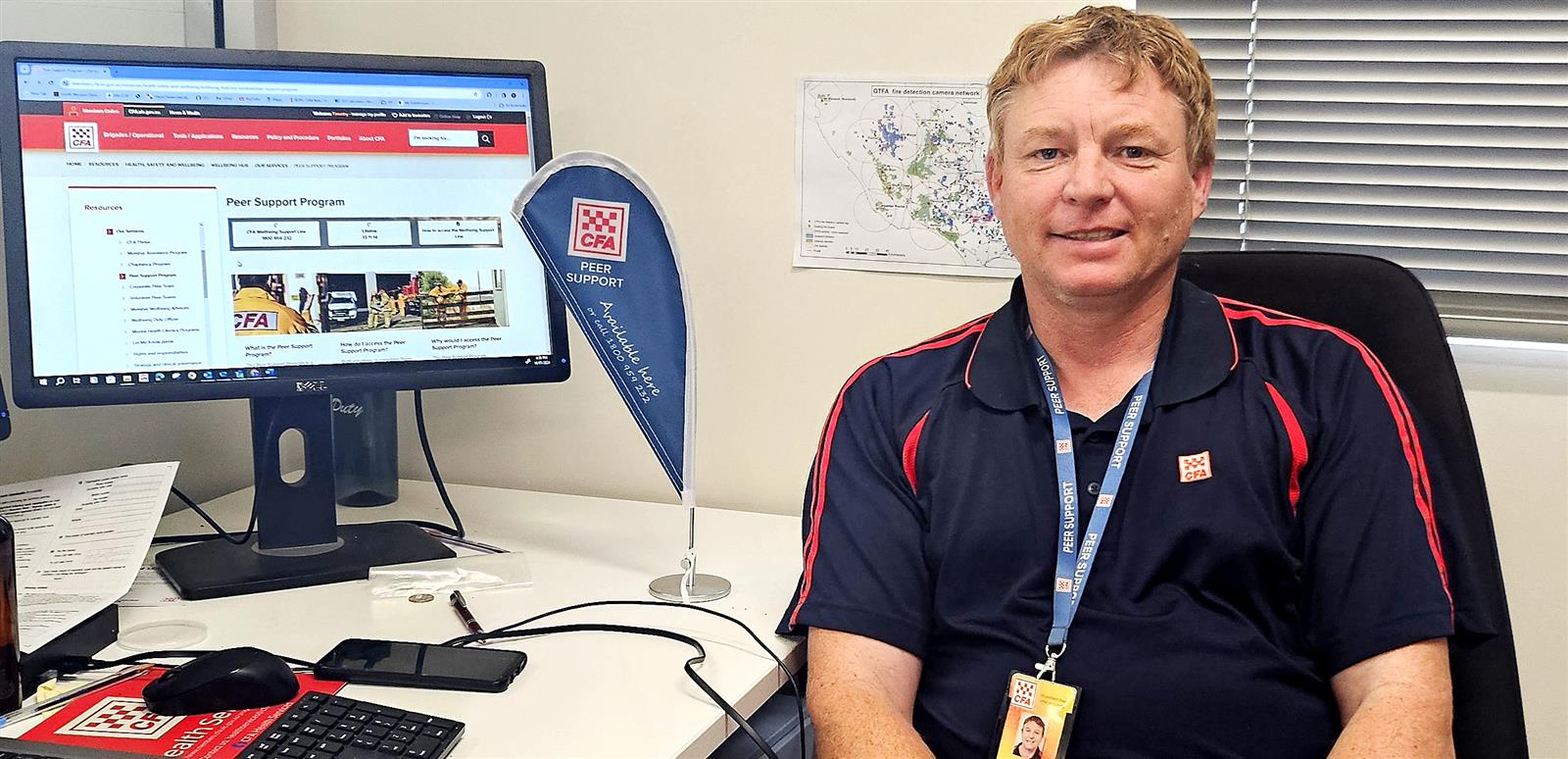 Peer Kylie Findley with CFA volunteers
Peer Kylie Findley with CFA volunteers
CFA's volunteer and staff peers talk to their fellow members about difficult or potentially traumatic events. We spoke to two peers about their experiences.
KYLIE FINDLEY
A regional brigade administrative support officer (BASO) in South East Region, volunteer with Orbost brigade and Orbost’s Group Secretary, Kylie Findley is happy to help anyone who walks into her office – staff or volunteer.
“As Arnold Schwarzenegger says in his book Be Useful – Seven tools for life, ‘You'll get more satisfaction from having improved your neighbourhood, your town, your state, your country, and your fellow human beings than you'll ever get from your muscles, your figure, your automobile, your house, or your credit rating’.”
Kylie was in CFA’s first intake of corporate peers, completing training online during the COVID-19 pandemic. As well as giving one-on-one support, Kylie has provided peer support during and after major disasters including in Bendigo and Echuca during the 2022 floods.
“Rocking up to a pump station where our members had been sitting for hours and having a chat and running an errand for them was great,” Kylie said.
“When members from my district came in for a meal break, it was like a reunion; they were so glad to see me. Just to sit and talk, give them some relief – chocolate – and a laugh; just being there to make them feel valuable was so impactful.
“There is a perception that peers are only there when someone is down, but we are there to remind everyone that they matter, that they are valuable and that we are there for them.”
Kylie is a strong advocate for the Peer Support Program and encourages other members to join.
“If you have ever thought about being a peer, express your interest, take the opportunity, and run with it. It will enrich your life as well as the lives of the people we serve.”
TIM PHILLIPS
Tim Phillips has been a volunteer for more than 30 years. He is 1st lieutenant at Digby Fire Brigade, deputy group officer for Merino Group and a BASO in District 4.
“When we come home from a traumatic event, sometimes we need to have that chat to help manage our thoughts,” Tim said.
“As emergency responders, my father and I have always had each other to talk to – I wanted to provide the same service to others.”
Tim is a peer with both the volunteer and corporate peer teams as well as a deputy peer coordinator.
“Mental health is such a huge issue in society. We all have things going on at home and in life and we can all suffer from the black dog. I have always been someone who people feel they can approach to get things off their chests, and I want to be there for those who need to talk.”
Tim recalls a group Psychological First Aid session he and another peer had with a brigade that had responded to a car accident.
“We sat and talked through their experiences, giving those who wanted to the chance to tell their own story. After the session the group officer called to thank us for the time we spent with the members.
“To have the feeling you actually made a difference to someone in their time of need gives you such an overwhelming sense of achievement.”
Tim said there were many reasons to talk to a peer, and sometimes the mere act of reaching out was enough to help people move forward.
“People often hesitate to seek professional help due to stigma. Peers can help reduce that anxiety and encourage people to reach out for further support.
“We can’t give you all the answers. Sometimes people have the answers already and they just need a non-judgemental ear to allow them to get things off their mind, process their thoughts and take the next steps.”
 Peer Tim Phillips
Peer Tim Phillips-
-
-
-
| Submitted by |
News and Media |